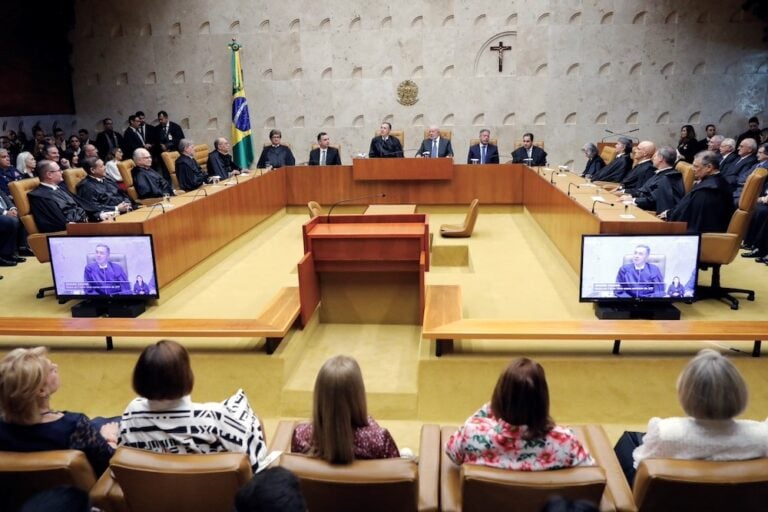(RSF/IFEX) – In a letter to the Brasilia High Court, RSF expressed its concern as four judges from the court are to deliver a verdict on the sentencing of the daily “O Debate” to pay a fine of 230,000 reals (approx. US$113,600; 125,000 euros) in damages and interest, for “defamation”. Without taking a stance on […]
(RSF/IFEX) – In a letter to the Brasilia High Court, RSF expressed its concern as four judges from the court are to deliver a verdict on the sentencing of the daily “O Debate” to pay a fine of 230,000 reals (approx. US$113,600; 125,000 euros) in damages and interest, for “defamation”. Without taking a stance on the incriminating articles, RSF asked the court to revoke the newspaper’s sentence. “The sentencing of a publication to pay damages and interest which will force it to interrupt its activities constitutes a de facto act of censorship contrary to citizens’ right to be freely informed,” noted RSF Secretary-General Robert Ménard.
According to information collected by RSF, on 6 February 2001, a judge rejected the appeal of the daily “O Debate”, published in Andradina, in São Paulo state, against the 230,000 real sentence in damages and interest for “defamation”. The complaint against the newspaper was lodged in 1995 by Judge Antônio José Magdalena, whom the newspaper accused of benefiting from a residence and a telephone paid for by the Santa Cruz do Rio Pardo municipality.
In June 1996, “O Debate” was sentenced in first instance to pay 340,000 reals (the same amount in dollars at the exchange rate of the day) in damages and interest. In August 1999, the penalty was reduced on appeal to 230,000 reals. Payment of this sum, which represents close to twice the daily’s capital, would force the newspaper to close. Aurelio Alonso, “O Debate”‘s director, appealed to the Brasilia High Court, which is expected to rule on the 6 February verdict. If the earlier decision is called into question by the court, the case could return to first instance. This option is one of the last recourses available to the newspaper.
Moreover, Samuel MacDowell, “O Debate”‘s lawyer, underlines that the amount sought is far superior to the ceiling set by the 1967 press law. Though it was challenged by the introduction of a new constitution in 1988, the press law was never repealed. “O Debate” also believes that the penalty is contrary to the Civil Code, which maintains that damages and interest must be set in accordance with the accused’s ability to pay, and must be in line with the constitution, which bars any obstacle to press freedom. Finally, MacDowell states that the defence was not allowed to present witnesses when the case was first heard.


